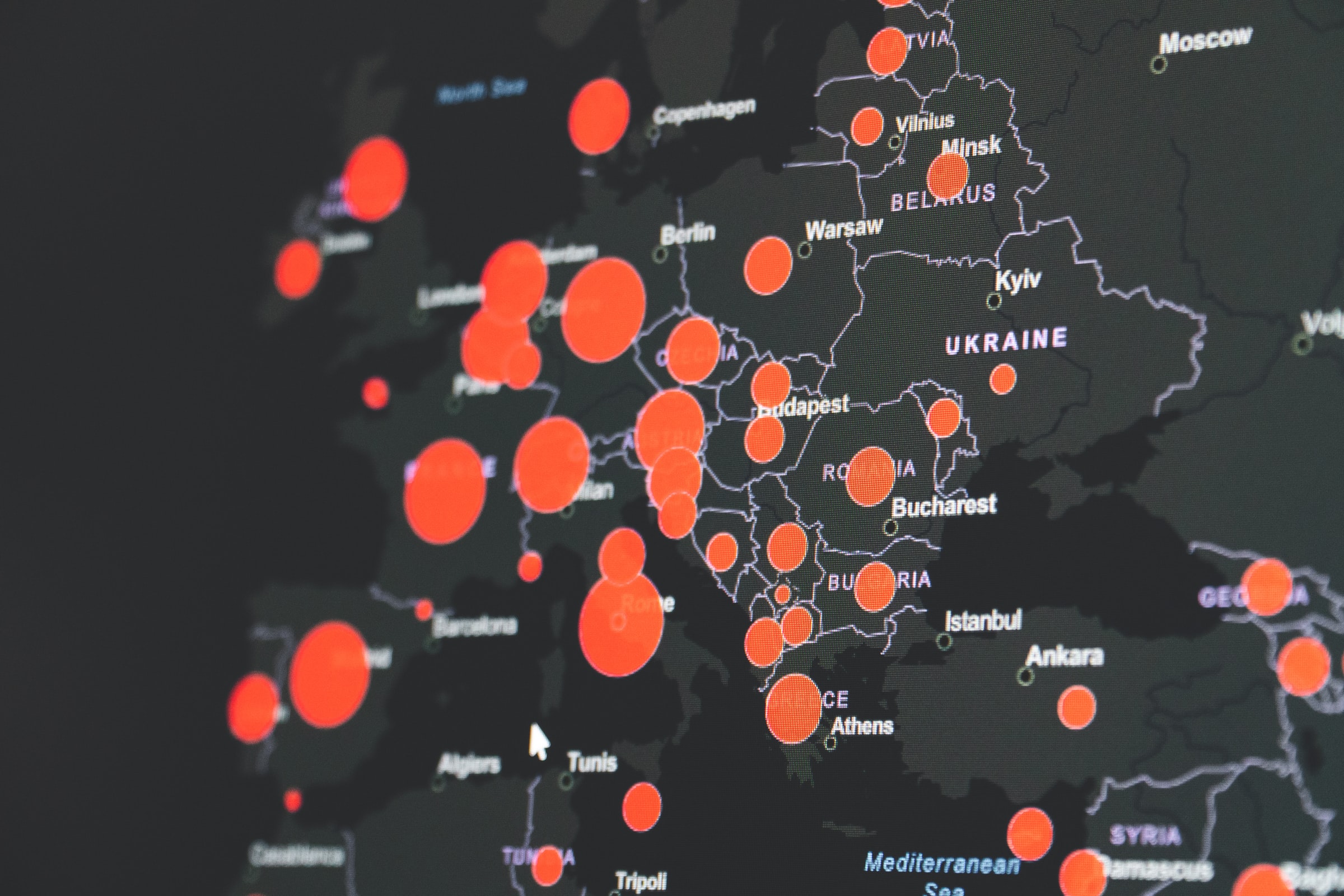The last two years have been a whirlwind, with virtually every community, industry and nation around the world being impacted by the pandemic in some way. Measures brought in to contain the virus, such as sudden, prolonged lockdowns and strict border closures, are starting to lift despite the continuing spread. These measures are not practical long-term solutions, and yet the virus is here to stay. So, how do we move forward and ensure that containing the virus and people’s safety are maintained?
The ‘end’ of the pandemic?
While some may say that the ‘end’ of the pandemic is approaching, this can be difficult to predict, particularly with the evolution of newer variants as we have seen with both the Delta and Omicron strains. Even after the ‘end’ of the COVID-19 pandemic, the virus is unlikely to disappear and will likely remain a part of society among the likes of influenza and seasonal colds. Whether COVID-19 disappears tomorrow, in 3 years’ time, is never eradicated, or a whole new pandemic emerges, life must go on, and business operations cannot halt forever. Businesses must be prepared and have plans in place to deal with any stage of a pandemic, including the one we are in now. Listed below are 4 things that every business needs to consider when faced with a pandemic:
1. Pandemic plans
Pandemic planning is what allows our society to effectively manage and stop the spread of infectious diseases. Without it, some of the shorter pandemics such as SARS and the Avian Flu may have wreaked more havoc than they did. The COVID-19 Pandemic may have been a once-in-a-lifetime event, but it is the unpredictability of pandemics and virus mutations that mean we must plan before one occurs. As pandemics are not as common as other events, such as supply chain disruptions and weather disasters, many are left unprepared when a pandemic hits. COVID-19 is a great example of this, with many businesses initially struggling to adapt to the new working conditions. Pandemic plans clearly outline the steps a business should take when faced with a pandemic. They include guidelines and processes relating to workforce flexibility, escalation, governance and safety. Having a plan in place prior to a pandemic occurring can help your business to calmly navigate rocky waters without the need to make plans and decisions while everyone is guided by hysteria and panic.
2. Vaccines
By far, the number one tool that the world has to combat COVID-19 are the recently developed vaccines. Many of them are mRNA vaccines, like Pfizer’s Comirnaty vaccine and the Moderna vaccine. These vaccines work by giving your cells instructions to make the virus’ spike protein. While harmless to the majority, it allows your body to effectively recognize and fight off the actual virus should you come into contact with it. As the vaccine’s efficacy wanes over time, regular booster shots will be needed to maintain this immunity, much like with influenza. Having high vaccination levels in the workplace is not only important to ensure that regulatory obligations are met, but also to limit the spread of the virus within small, less ventilated areas such as offices. Vaccine mandates may or may not be required for your industry, and it is recommended to seek legal advice prior to enforcing such a mandate.
3. Social distancing
While many restrictions relating to social distancing and capacity limits are likely to lift as vaccination rates increase, implementing some to avoid outbreaks could avoid sending many of your staff into isolation. For some roles, continuing to work from home for all or the majority of their days could prevent the spread of many illnesses. Or, should it be required that many of your staff return to the office, having the equipment and software available to allow staff to work from home can ensure that business operations continue, even in the event of an outbreak that leads to isolation.
4. Masks and hand sanitizer
Should your business involve customer-facing operations, one employee can interact with tens to hundreds of customers every day. Limiting both employee and customer exposure to the virus is vital to keeping a store or café open, as one COVID-19 outbreak can result in the store being closed and both staff and customers having to quarantine. Ensuring the capacity limits are kept to is important. It is important for all employees (customer facing or not) to have access to protective face masks and hand wash/hand sanitizer to limit any contact they may have with the virus. Ensuring that high-touch points are regularly sanitized can also help prevent the spread of COVID-19, should a customer or staff member bring the virus onto the premises.
A global pandemic is just one example of how the world can completely change overnight. This pandemic won’t be the last, and it definitely won’t be the last global disruption that businesses will face. Waiting for the worst to occur before giving any thought to how to deal with it is a recipe for nothing but disaster. While a pandemic may be one of the most disruptive events that some of us have faced within our lifetimes, being prepared for even the smallest disruptions can ensure your business’ continuity, longevity and long-term profitability.
At Resilient Services, we offer a variety of services that aim to prepare your business for whatever the future may throw at it. Pandemic planning is just one of our specialties. Our specialized team can also provide Disaster, Emergency and Risk Management Planning services, as well as Business Continuity Plans and After-Action Reviews. Who knows what 2022 might throw at us? While we can’t know for certain, always remember that no matter the time or place, we must always prepare for business as anything but usual.




